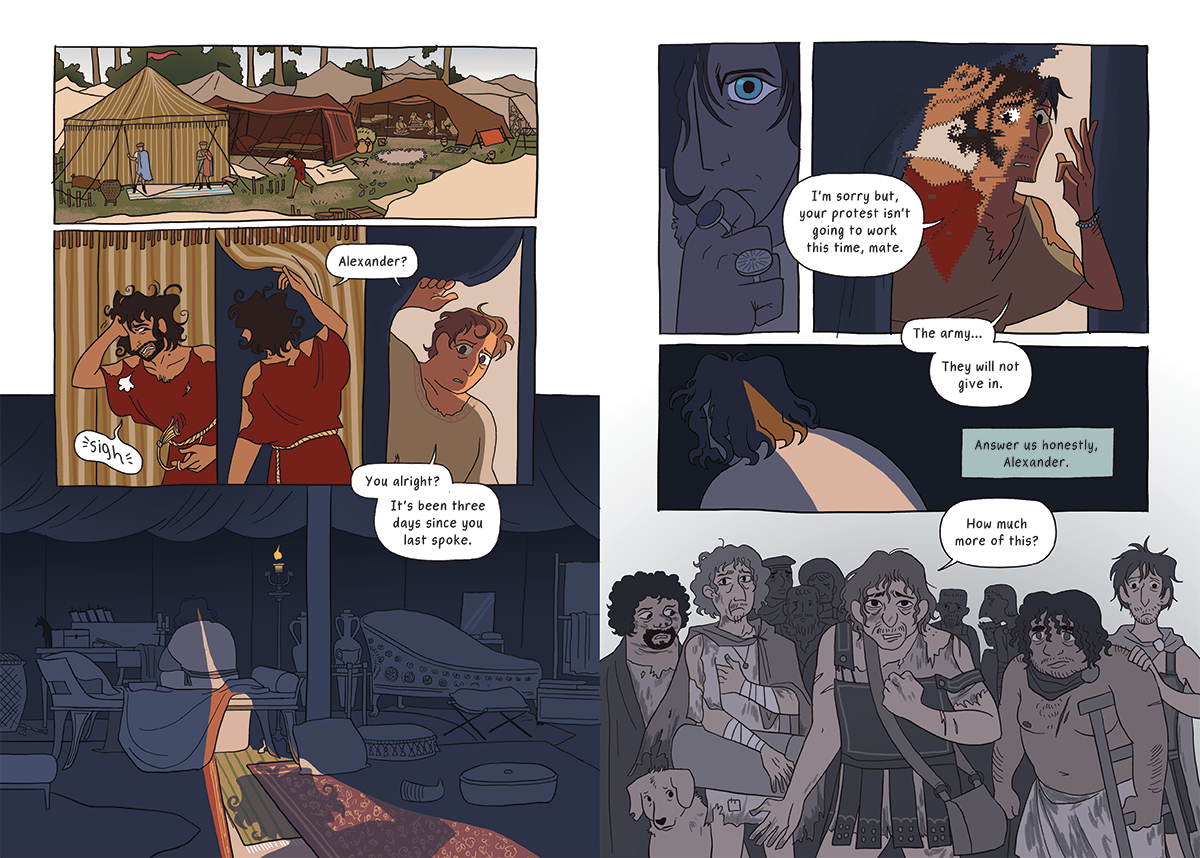Book 1, Chapter Seven: The Ascent, Pages 159 and 160
Our Hephaestion, dark, tall,
thirty years of age,
stands haltingly at the feet of Alexander’s royal tent.
He steps carefully in, fingers twist in the mauve canvas opening.
From outside comes the light, descending on Alexander’s back,
alone in shadow.
“Alexander?” says Hephae…
no, wait, it is not Hephaestion. My apologies. I must have read it wrong earlier.
Here it is apparently Ptolemy who is speaking,
the barrel-chested square-jawed and soft-cheeked
general and famous friend of Alexander, namesake of the Ptolemaic dynasty.
A mighty king to have in our story! But here,
he is a young man, worried for his friend.
“You alright?” pleads strong-willed Ptolemy. “It’s been three days since you last spoke.”
Alexander continues his vow of silence in the darkness.
Pto… oh my goodness, I am so sorry again.
It’s no longer Ptolemy but Seleucus of Nicator who is speaking,
the sharp-faced thin-haired and peregrine-nosed general and famous friend of Alexander, namesake of the Seleucid Empire.
A wonderful king to have in our story! But here,
he is a young man, worried for his friend.
“I'm sorry, but your protest isn’t going to work this time, mate,” warns the hawkish Seleucus. “The army… they will not give in.”
Alexander scowls at the memory unearthed in his mind,
of the mutiny three days before.
He, so close to becoming king of India, thwarted not by fighting or elephants or disease — but his very own men!
All for what?
The voice of Coenus, an old veteran, weighs annoyingly. The only one brave enough,
to respond to Alexander’s grandiloquent and awkward attempt to rile up confidence.
What was it the old man said?
It was this,
“Answer us honestly, Alexander.
How much more of this?”






